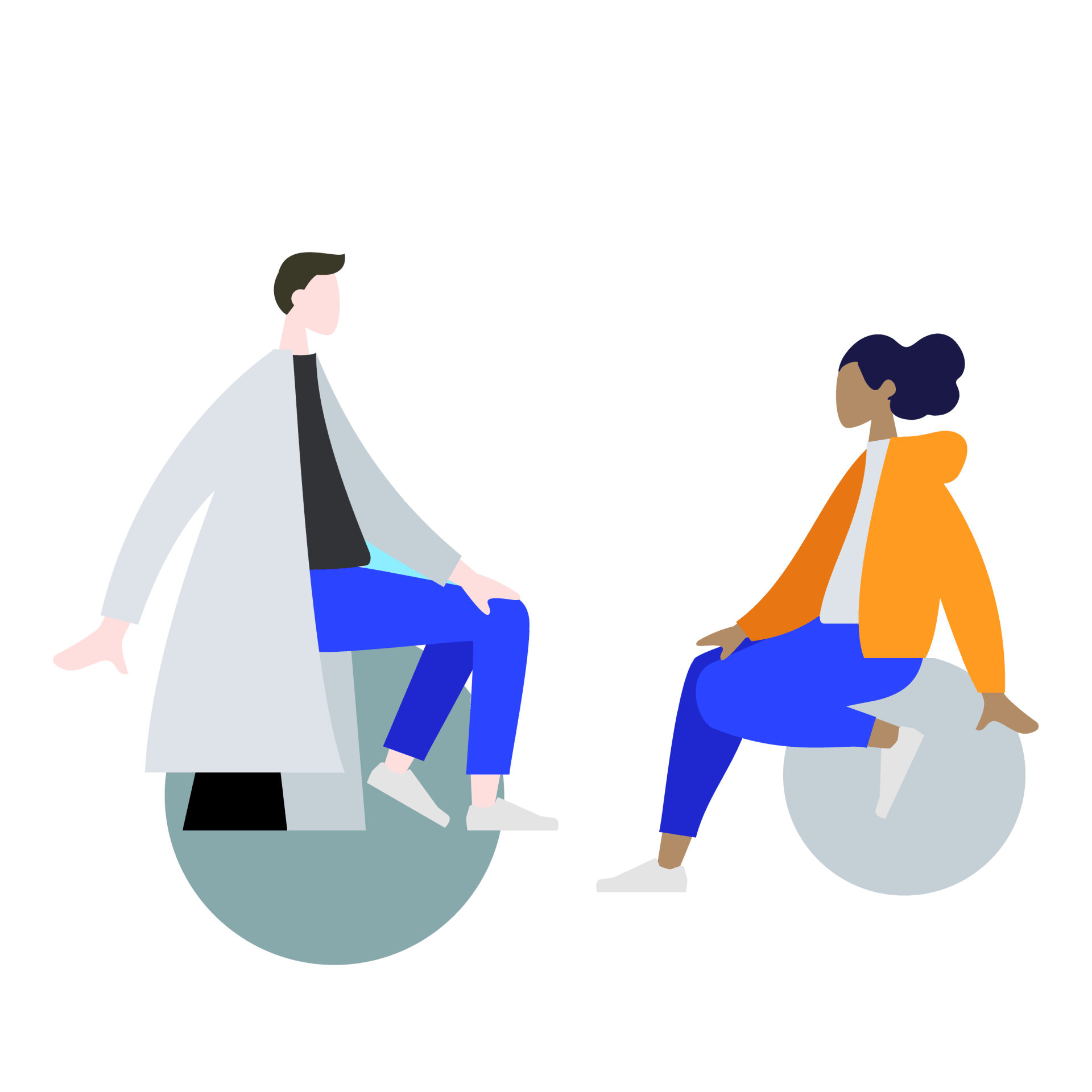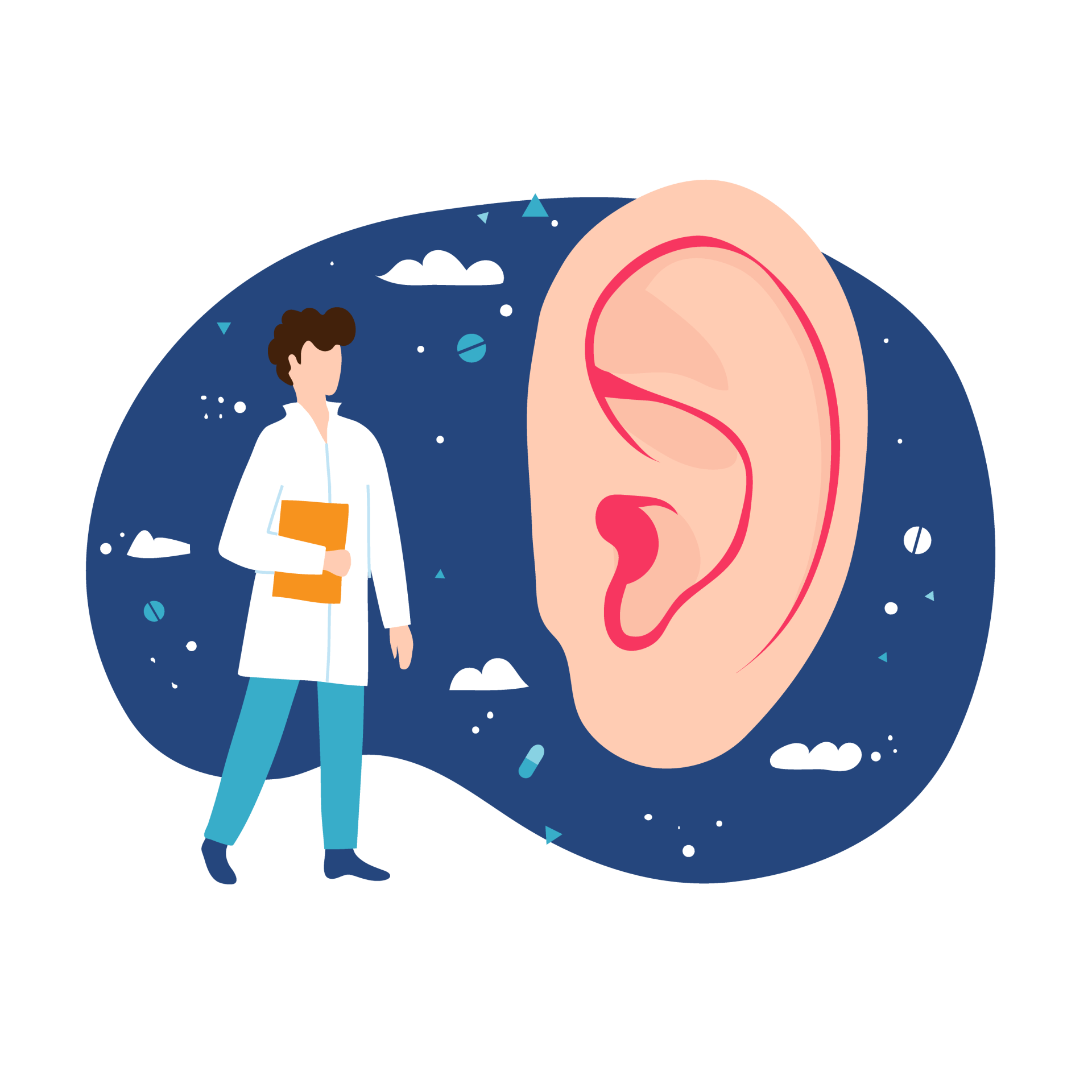Give Your Hearing A Second Chance
Acoustic Audiology is Lloydminster’s only audiology clinic
Understand Your Hearing
Get a clear picture of the state of your hearing and why you experience sounds the way you do.
Get To The Root Cause
Our personalized recommendations manage and treat the reasons of your hearing challenges.
Improve Your Success
Instead of a one-time remedy, Acoustic Audiology relies on a process for ongoing improvement.
See What Our Clients Are Saying
Three Steps To Hearing Care
Hearing aids are only one option to treat and manage hearing loss. Our approach to hearing care identifies the reasons for any hearing challenges, and then we match the best solutions for you.
If you haven’t visited a hearing clinic before or already have hearing aids, we always follow these three steps


1. Test And Understand
Our hearing care is guided by comprehensive diagnostics and understanding how you experience sounds in all types of situations.
2. Treatment And Rehabilitation
Using the results of the hearing test, we recommend evidence-based options that have the best potential to make a difference in your life.


3. Monitor And Adjust
Hearing care is a journey. We routinely review your hearing health and adjust the recommended next steps to improve and optimize your hearing.
We’ll share the science of hearing
We are always learning about the recent developments in audiology. Here are our latest insights into hearing care and technology.

The most obvious and well-known benefit of hearing aids is that they provide specific amplification of sound when hearing loss is present. This is certainly an important benefit, but it is in no way the only advantage that comes from hearing aids. To appreciate the myriad of advantages that hearing aids can offer, it’s important to first understand how they work and how the brain plays a large role in your overall hearing health. How hearing aids work Your ears collect sound waves and transform them into neural signals that your brain can process. Your outer and middle ear collects sound, amplifying them and converting them into mechanical vibrations; these are then passed on to the inner ear (the cochlea), which converts them into electrical signals that are processed by your brain. As odd as it sounds – we hear with our brain, not our ears. There are many ways this process can be altered or disrupted. The most common type of hearing loss is called sensorineural hearing loss. This most often occurs when the outer hair cells in your inner ear get damaged (e.g., age related changes, exposure to loud noise, exposure to ototoxic medications). These outer hair cells are important for amplifying sounds, as well as fine tuning the sound so it is crisp and concise. When they get damaged – you lose the biological amplification that your inner ear was providing, making it hard to hear certain sounds. Hearing aids work to amplify the sounds entering your ear, greatly improving the chances of your brain receiving a strong signal that it can interpret and transform into perceivable information – so that you can “hear” it. Your brain plays a key role in the process of hearing, and your hearing health is directly tied to your brain health. As this is the case, hearing aids can have a direct impact on your overall mental and physical well-being. Benefits of hearing aids Better hearing Hearing aids amplify the sounds you hear from people you communicate with as well as the sounds that come from your surrounding environment, helping you make the most out of the hearing that you have. Potentially minimize future hearing loss Remember – we hear with our brains, not our ears. When you first start wearing new hearing aids, your brain receives sound signals it likely hasn’t processed in quite some time. Because of this, it can take time for your brain to adapt to the new information it is receiving. Think about someone who just got a knee replacement – it takes time for the body to learn how to use it and make the most out of it. The same goes for hearing aids – it takes time for our brain to learn how to make the most of our hearing aids. It is important to start using hearing aids sooner than later when it comes to your hearing loss. The longer you wait, the more difficult it will be for your brain to adjust to the new signals. Using hearing aids earlier in your hearing loss process allows your brain to develop stronger neural connections, ensuring you are making the most out of your hearing ability. For more detailed information on this topic you can read our article on “Will my hearing get worse if I don’t get hearing aids.” Remember, you hear with your brain not your ears. The longer your brain goes without processing certain sounds, the less normal they become. This is why it takes time to get used to hearing aids – it is not like flipping on a switch. Think about muscles in your legs – if you have not walked in a few years, your leg muscles atrophy and weaken. You can always strengthen them again to make improvements, but if you wait too long then there is not as much that can be done. The same goes for your hearing – when there is hearing loss, it means that certain parts of your brain are not being used, or stimulated, properly. The longer these parts of your brain go without stimulation, the more they can wear out or “atrophy.” Generally, the longer someone lives with untreated hearing loss, the lower our expectations are for treatment. Support for mental health Because of the direct relationship between your ears and your brain, a decline in your hearing can play a direct and negative role on your mental health. If your brain is receiving a weak or incomplete signal from your ears, then it will have to work much harder to comprehend what it is receiving. This can directly lead to higher levels of exhaustion and an overall reduction in your mental well-being. Hearing aids help to negate this effect, reducing the cognitive load on your brain and improving your overall mental health. They also improve your hearing! Reduced social isolation A very common outcome of hearing loss is an increased level of isolation from the outside world and the loneliness that such an effect can create. If you cannot properly hear what others are saying, you are more likely to avoid situations where you are required to interact. The worse our hearing gets, typically the more we avoid environments that are difficult to communicate in. If people start to withdraw from activities they enjoy, and from interacting with those that are most important – this can have a huge negative impact on our overall well-being. Yes, hearing aids amplify sound. But the goal of getting hearing aids is to improve your quality of life through hearing rehabilitation. We want to improve your hearing so that you can do the things you enjoy and communicate with those that are most important. Hearing aids allow you to take back your independence and let you enjoy the social situations that you used to avoid out of fear of embarrassment or stress. Reduced risk of dementia Many recent studies have found that untreated hearing loss dramatically increases the risk of dementia. This is not a black and white relationship, and more research is currently taking place to help us better understand how hearing loss increases dementia risk and how various hearing loss treatments may reduce this risk. As your brain must work harder to interpret the reduced signals it receives, it is thought to degrade faster than it would otherwise due to an increased cognitive load. Increased social isolation because of hearing loss can also speed up cognitive decline – if we are slowly withdrawing from social environments, we are not getting as much cognitive stimulation. When we communicate with people, we are using many parts of our brain, we are not simply “hearing sound.” When someone speaks to us, we are of course hearing sound, but our brain is processing that sound to allow us to comprehend what someone is saying. We then must remember that information long enough to process it (using our “working memory”) and then decide how to respond. If we have to use too much mental energy to try and determine what someone has said, we are less likely to remember what was said. This is one reason why short-term memory problems can start to occur with hearing loss. This entire process requires the use of a multitude of different parts of the brain. With hearing loss, particularly when we isolate ourselves, we are depriving our brain of stimulation that keeps it healthy. When it comes to our brain – if you don’t use it, you lose it. The sooner you decide to seek treatment, the better your chances are of avoiding these destructive outcomes that hearing loss can play on your mental well-being. Improve your hearing health It’s quite clear that hearing loss can have a myriad of negative effects on your life, both mentally and physically. By treating your hearing loss, you can improve many different areas of your life, ensuring they are staying as healthy as possible for years to come. You can book an appointment today at Acoustic Audiology to test your hearing and see if hearing aids might help you. We’ll take you through every step of the process, ensuring you receive the highest level of hearing healthcare you need to improve your quality of life – so that you can enjoy your life to the fullest.

Some of our audiology associations in Canada have collaborated and put together this wonderful communication tip sheet for healthcare professionals for communicating with people with hearing loss - tips for both in-person and virtual care (i.e. video). Communication Tip Sheet for Healthcare Workers - Communicating with Patients with Hearing Loss Please share these far and wide - medical appointments are stressful enough without having to worry about miscommunication. Today's current landscape means that most of our medical appointments will be completed with face masks - making lipreading impossible. The more people that learn about how to communicate better with people with hearing loss, the better! Thanks everyone! Stay safe out here! Terry Sokalofsky, BA, MSc, R.Aud, Aud(C) Registered Clinical Audiologist

In the audiology field, the two most common types of hearing implants we deal with are Cochlear Implants (CIs) and Bone Anchored Hearing Systems (BAHS). Both types of implants are designed for people with specific types of hearing loss, when “traditional” acoustic hearing aids are not the best treatment approach. A Cochlear Implant (CI) is reserved for people with sensorineural hearing loss who are not able to get sufficient benefit from acoustic hearing aids because of the extent of the damage to their inner ear(s). A CI works by stimulating the auditory nerve directly, bypassing the majority of the damaged inner ear. This way of hearing is far different than you would experience with healthy ears, or with hearing aids, because the nerve is being stimulated directly by electrical impulses instead of sound waves. CIs have come a long way since they were first fit in Canada in the early 1980s. A cochlear implant is the visual equivalent to giving a blind person some of their sight back. It is important to know that this is not a correction to someone's hearing, and it has nothing to do with implanting a new "cochlea" (i.e. inner ear). It gives the brain more auditory information than it had previously. Over time the brain makes sense of this new electrical information - with patience and perseverance the cochlear implant recipient should get better at recognizing sound and hopefully better at interpreting speech. Unfortunately, many individuals who are candidates for CIs are unaware because most people who perform various types of hearing tests and fit hearing aids are unaware of the candidacy criteria, or the referral path, to get a Cochlear Implant Candidacy Assessment. Bone Anchored Hearing Systems (BAHS) are a type of hearing aid designed for people who have anatomical abnormalities that affect how sound enters the ear canal (e.g. microtia), have extensive damage to their middle ear (i.e. eardrum, middle ear bones), or who are completely deaf in one ear (i.e. Single-Sided Deafness). With this type of hearing aid sound gets transmitted directly to the inner ear through the patient’s skull (i.e. “bone”) via a bone conduction, bypassing both the outer and middle ear. The reason this type of hearing aid works is because the inner ears are actually inside the skull. The simplest types of bone anchored hearing devices are worn on a headband (this is often the situation during a trial period to determine potential benefit prior to surgery; headbands are also commonly used with children who are not matured enough anatomically to receive surgery). The best results will be received when the hearing aid is directly connected to the bone - one of the most common ways is via a titanium post that is surgically implanted into the mastoid bone of the skull. The hearing aid is then attached to this post to allow a direct mechanical connection between the hearing aid and the skull. When the hearing aid is removed, this post (referred to as an abutment) is left protruding out of the skin. There are also other types of bone anchored systems other than the abutment and headband - but the concept of bone conduction remains the same. Much like cochlear implants, these types of hearing aids work exceptionally well for potential candidates. However, as with cochlear implants - most people who fit hearing aids and perform various hearing tests are unaware of the candidacy criteria, or the referral path, to get a Bone Anchored Hearing System Candidacy Assessment. Depending on the extent of the hearing loss, an individual might be a candidate for Bimodal Hearing. This means that a cochlear implant or bone anchored hearing aid is used on with ear, in conjunction with an acoustic hearing aid on the other ear – allowing someone to get the benefits of both implanted hearing and natural acoustic hearing. Following a Diagnostic Hearing Assessment you will be advised as to whether you are a potential candidate for a cochlear implant or bone anchored hearing system. Remember that not everyone with hearing loss is a candidate for “traditional” hearing aids. Audiologists are the most qualified hearing professionals to help determine potential candidacy for implantable hearing devices. In Canada there is assistance through healthcare for cochlear implants and bone anchored hearing devices - the surgery, the device itself, and the follow-up. Every province has different policies and coverage in place for CIs and BAHS. Our audiologist can help point you in the right direction if you are a potential candidate for a CI or BAHS.





